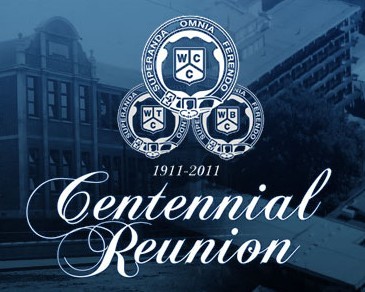Wanganui City College centennial reunion

I begin by greeting everyone in the languages of the realm of New Zealand, in English, Māori, Cook Island Māori, Niuean, Tokelauan and New Zealand Sign Language. Greetings, Kia Ora, Kia Orana, Fakalofa Lahi Atu, Taloha Ni and as it is the afternoon (Sign)
I then specifically greet you: Craig Smith, Chair of the Board of Trustees of Wanganui City College Te Kura Tuarua o Te Manawa and your fellow trustees; Peter Kaua, Principal of the College and your staff; David Bennett, Chair of the Reunion Committee and your colleagues; Your Worship, Annette Main, Mayor of Wanganui; current and former students and teacher, most notably Professor Sir Paul Callaghan, Professor Roger Clark, Bill Mansfield and Douglas Day; Distinguished Guests otherwise; Ladies and Gentlemen.
Thank you for inviting me to be here for part of the centennial of Wanganui City College. I would like to make three points.
The first point refers to connections. While I am not a former pupil myself, my late father, Mutyala, was a boarding student in the late 1920s while studying on a Fiji government scholarship. In later years, he spoke with much affection of his time at this school and the many friends he made and kept for a lifetime from here.
It is that sense of connection that has seen such an impressive turnout of former staff and students attending this weekend’s centennial reunion. American writer Franklin Pierce Adams' once wryly noted that: "Nothing is more responsible for the good old days than a bad memory." That many have travelled long distances, including from as far away as Scotland, Sweden and the United States to be here, speaks of a school that is held in high esteem by its alumni—rose-tinted glasses notwithstanding!
The reference to alumni leads to a second point of achievement. The achievements of this College’s alumni span many fields from science and sport to politics and public service. They include a winner of our nation’s highest honour, the Victoria Cross, won by Sergeant-Pilot James Allen Ward, after whom the College’s J.A. Ward Memorial Hall, is named.
They also include in addition to those I have named, the newly appointed Chief of the New Zealand Force, Lt General Rhys Jones , All Black Chris Masoe, Commonwealth Games medallist and lawn bowler, Peter Belliss , Olympic medallist and cyclist Gary Anderson , Rhodes Scholar Robert Burchfield , and Fijian politician, Ratu Sir Edward Cakobau.
My third point refers to history. Since it opened in 1911 as Wanganui Technical College, or “Wanganui Tech” as it was more commonly known, the name of the school and the composition of its roll have changed several times.
From the early 1960s it became a boys-only school and was renamed Wanganui Boys’ College. In the mid-1990s, it became Wanganui City College and became co-educational once again. In recent years, its student population has become highly multicultural with a strong Māori, Pacific and Asian representation.
That proud history has been marked by a strong commitment by the school’s trustees and staff to providing the best educational opportunities to the College’s students and the wider community. That an institution celebrating its centenary should look back on a history led by just nine principals underscores that service to education.
That service to educational values has also been matched by the College’s quality facilities, including its gymnasium, swimming pool, landmark Tower Block and its boarding facilities.
In conclusion, these three points—connection, achievement and history—speak of a school that has put down solid roots within this community. Staff, students and alumni can rightly celebrate a century achievements.
However, if I might borrow a phrase from cricket, having “bagged a brilliant ton”, the next century a waits for the College. Despite the uncertainty of the future, I am confident that if the school remains committed to the values of it motto, Superanda Omnia Ferendo—that by work, all things can be overcome—the next century will be even better than the last.
And on that note I will close in New Zealand’s first language Māori, by offering everyone greetings and wishing you all good health and fortitude in your endeavours. No reira, tēnā koutou, tēnā koutou, kia ora, kia kaha, tēnā koutou katoa.
